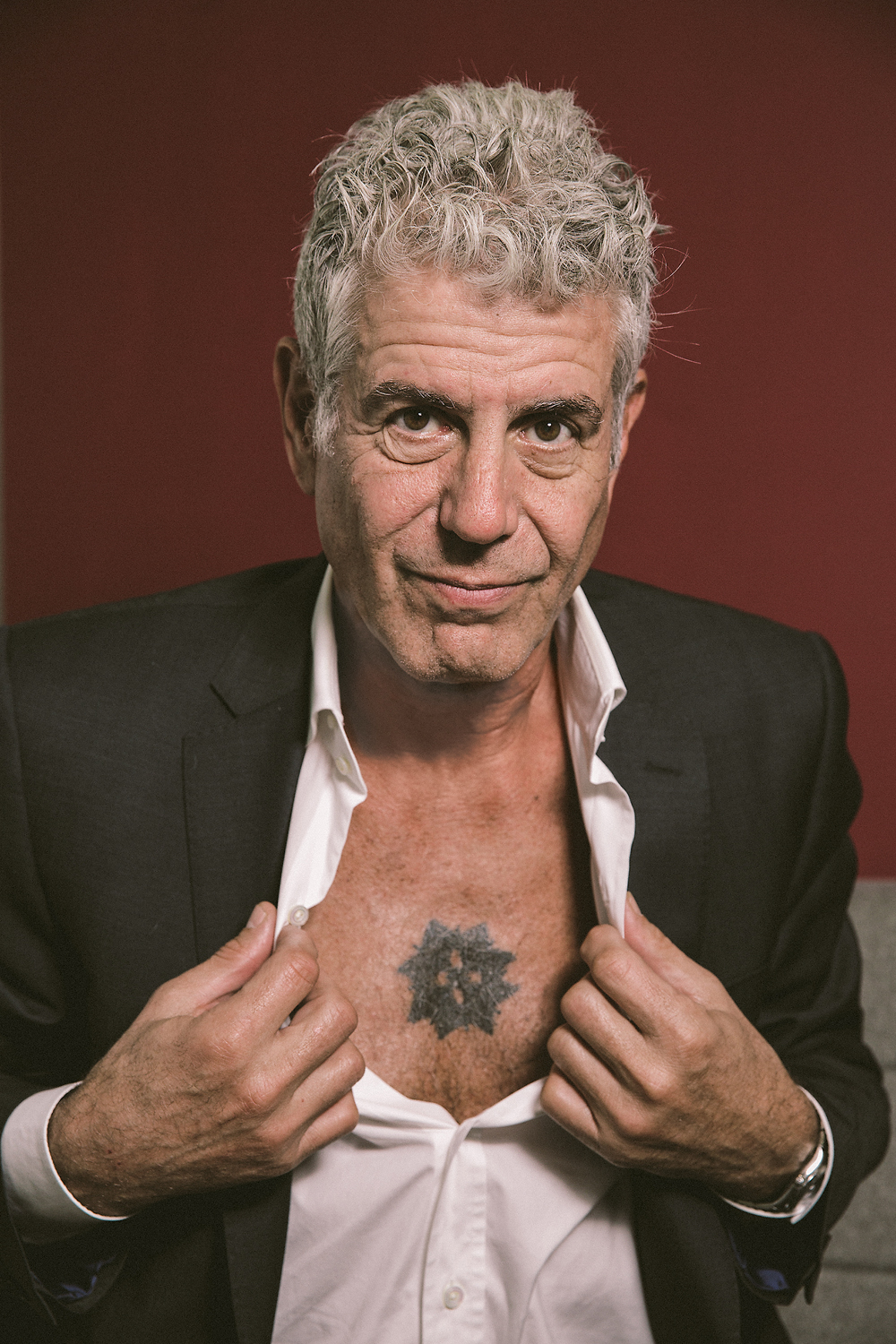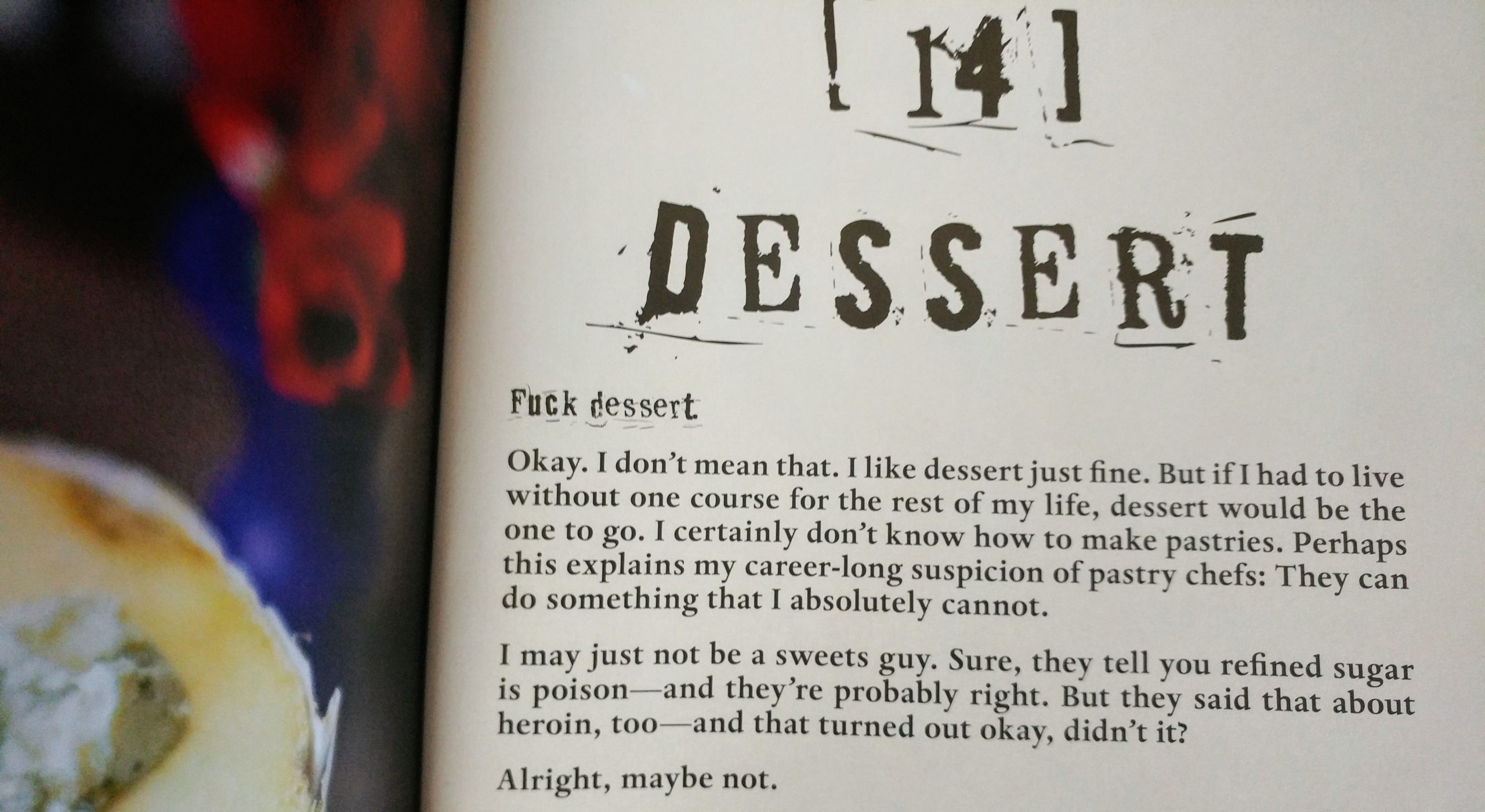

ANTHONY BOURDAIN
It’s a delicate thing, to attempt a telling of the story of someone you care about. When it’s someone you’ve never met, things get weird. And they get weirder still when that person is not only recently deceased but also fiercely championed, on a deeply personal level, by millions of other people who, like you, never once met him.
At any stratosphere, death brings with it the kind of competitive clamoring that humans can’t seem to go without. Who knew him best? Who were his real friends? Who talked to him at the airport once? The television shows, books, articles, video clips, and comments from the media provide ample fodder for speculation, misrepresentation, and performative public outcries. Everyone wants to be a part of the mass consciousness, even (especially) when it borders on the ghoulish.
So, you focus. You focus on the story. How does the story of Anthony Bourdain go? We could say, for instance:
Once upon a time, a gangly kid named Tony who loved the Ramones and the New York Dolls moved to New York City for the heroin and ended up an author and host of various TV shows, and having noodles for lunch in Hanoi with a sitting American president.
Or:
There was once a kid who sailed to France on the Queen Mary and hated it until he found out about oysters and other things he could eat that made him look like a badass. He loved comic books and The Simpsons. As a rule he didn’t like sci-fi, but he loved William Gibson‘s work. He went on to graduate from the Culinary Institute of America. He became a chef, then a writer, then world famous, making friends with an incredible cross-section of people, including some of his heroes, like Joey Ramone and Iggy Pop.
Or maybe:
For a time, there was on Earth a TV host and writer and chef whose cookbooks employed phrases like “Fuck dessert,” and who said things in interviews like, “Ask yourself, before you start dabbling in what somebody, somewhere is calling molecular gastronomy: ‘Am I a genius? Am I Ferran Adrià? Am I anywhere near as talented and as visionary and as firmly rooted in a place with as much food culture as Catalonia? Or am I just kind of jerking off, here?’” But millions of people all over the world loved him because he inspired them to be themselves, to be better versions of themselves, to follow their dreams, to be unafraid.

Or even:
Tony loved and respected people as much as he loathed and reviled them, and he made no bones about either. Deemed cocksure by detractors, he was often visibly nervous on his shows: rubbing his thumb across his other fingers, or shutting down a bout of uncontrolled laughter—and hiding a protruding snaggle tooth—by quickly sealing his lips. He openly, and with regularity, expressed disgust for public figures, and treated people who were in no position to help him with utmost respect. And he packed an incredible amount of life into not-quite-62 years.
Was there ever a person so deeply and unapologetically flawed who captured the attention and the hearts of so many? After his death, I heard variation upon variation of what one particularly rational, even-keeled friend had quietly shared with me: “I can’t believe he’s gone. He was…well, he was my friend. I only knew him from his shows, but he was my friend. I genuinely saw him that way.”
In autumn of 2018 I was in New York City and briefly visited the former site of Les Halles, the restaurant where Bourdain last worked as a chef. While the mountains of flowers and cards that cropped up in the weeks following his death had, by late September, been mostly removed, the windows still bore heartfelt notes in the form of graffiti. The messages were, again, variations on a theme:
I don’t really know what to say, but I miss you more than words can describe. Maybe that sounds weird since we’ve never met… Thank you Chef for all you have done and for showing us the world through an unfiltered lense [sic].
If there is a heaven, then anyone who couldn’t live anymore deserves a head of the line pass to get in, because you’ve suffered enough. I love you man.
Thank you, Chef.
Here’s a phrase I often press into service as a yardstick for coolness: Homo sum, humani nihil a me alienum puto*. Written by the second-century Roman playwright Terence, it translates roughly from the Latin as: I am human; nothing human is alien to me.
It isn’t a perfect tool. Not every Everyman is cool; not all cool people are comfortable being one with the unwashed masses. But mostly, if you can be down with humanity in a wide variety of settings, chances are good that you’re probably pretty cool.
And Bourdain was down. He was totally fucking down.
Everyone else at that level of stardom, I will happily argue, is either the product of a PR machine or simply not as forthcoming about their personal failures. Bourdain was neither; he was particularly adept at outlining his personal failures, willing to be raw, and willing to be wrong. Here I am, he conveyed through his work. Here I am, no better or worse than anyone else, and wow, we’re a fucked-up bunch. But look at all this beauty.
Laurie Woolever is a writer and editor who for the better part of a decade worked as Bourdain’s assistant and collaborator. They co-authored Appetites: A Cookbook in 2016, and had been working on World Travel: An Irreverent Guide (to be published in 2021) at the time of his death.
Via email, Woolever wrote: “He was adamant that he wasn’t actually cool.”
He was wrong about that, of course.
The only story about Bourdain I’m qualified to tell goes like this: Once there was a man named Tony, and he was as fucked up as anyone else but he did something with his life—many somethings, in fact. He was funny and kind; rude and crass. He loved music and art, and all the ways in which people forge real connections. He was curious and intelligent, vulnerable and sarcastic. He made the world seem a much more beautiful and welcoming place than many of us suspect it is. I felt, and still feel, that he was one of my people. That he was my friend. When he died, it felt extremely personal. And it still does. I miss him.
~ Emma Alvarez Gibson
*I like to think that Tony would have been amused at this use of the word “puto”.
Ω
